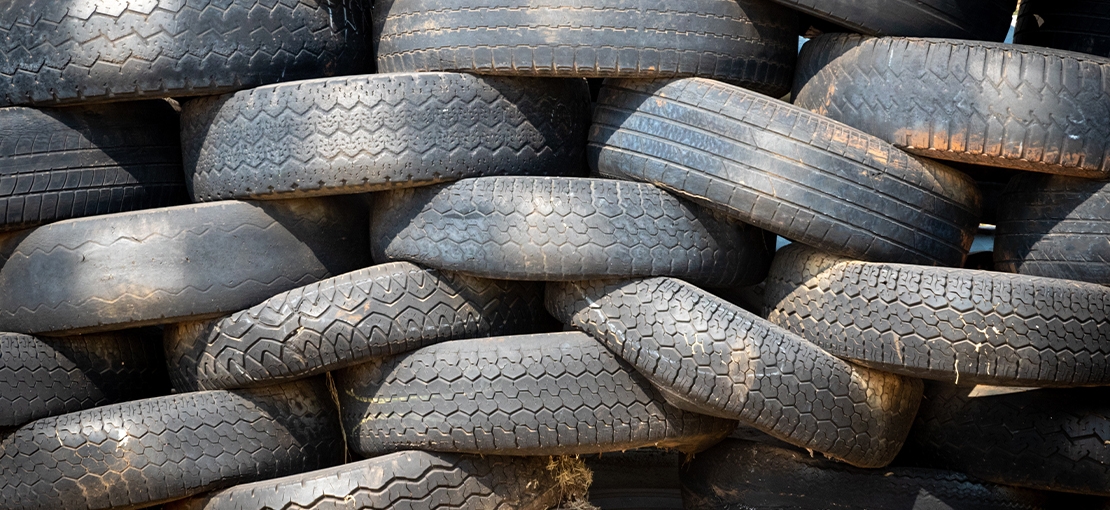
Mass Balance Approach to Recycling
Climate protection thanks to recycled tires
Many plastics are extremely difficult to recycle and are either incinerated or taken to landfills. This is particularly true with used tires – but even tires can be recycled and serve as an environmentally friendly crude oil alternative.
Quite an accomplishment, for people and the planet!
VAUDE is the first outdoor company in the textile sector to use a chemical process technology that produces polyamide from plastics that are difficult to recycle. In a certified mass balance process, the oil recycled from used tires (pyrolysis oil) is fed into the polyamide production system. For this purpose, the carbon chains contained in used tires are molecularly decomposed and, through chemical transformation, serve as an alternative to crude oil for plastic production.
Since this alternative raw material is introduced into the production facility directly at the beginning of the chemical value chain, the resulting product (such as our polyamide) has exactly the same qualities as conventionally manufactured products. The great advantage of this is that these materials can be further processed exactly as before. For example, dyeing and other textile processes don’t have to be revised, but rather existing technologies can be used and this helps us make a contribution to reducing waste volumes and conserving valuable resources.

Our innovative material is just as resilient, quick-drying and high-performance as conventional polyamide derived from crude oil - but far more environmentally friendly in comparison!
In our S22 Collection we’re using this material for the following models:
- Men’s / Farley Stretch T-Zip Pants III
- Women’s Farley Stretch T-Zip Pants III
- Men’s Yaras ZO Pants
- Women’s Yaras ZO Pants
We are continuing to expand the collection with additional materials, so not all models can be listed by name.

This technology reduces CO2 emissions during production by approximately 60%* and conserves scarce resources making a valuable contribution to climate protection!
* Chemcycling, Environmental Evaluation by Life Cycle Assessment, BASF, November 2020 GaBi version 9.2 (2020), Sphera AG, Polyamide 6 Granulate
Mass balance is an established approach that can be used to track the flow of materials through the manufacturing process. In this approach, the proportion of recycled raw material is mathematically allocated to the end products. The mass balance method is suitable for complex upstream manufacturing chains where the raw materials are mixed and it provides a set of rules for how to allocate the recycled content to different products to be able to claim and market the content as mass balance recycled.
Read more
| GRI: | 301-1 |




